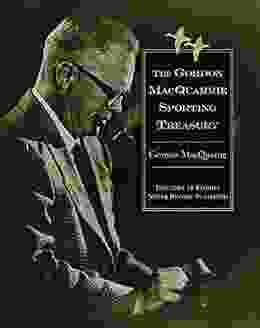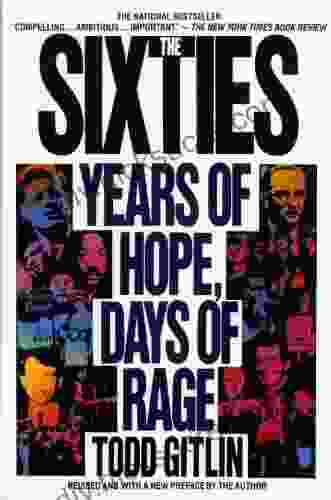Psychosocial Strategies for Athletic Training: Enhancing Performance and Well-being

4.4 out of 5
| Language | : | English |
| File size | : | 22570 KB |
| Screen Reader | : | Supported |
| Print length | : | 352 pages |
| X-Ray for textbooks | : | Enabled |
In the competitive realm of athletic training, the athlete's physical prowess is often the focal point. However, the psychological and social dimensions hold immense significance in shaping an athlete's performance and overall well-being.
Psychosocial strategies in athletic training recognize this interplay and aim to optimize the athlete's mental and emotional state, fostering a positive and conducive environment for performance excellence and personal growth.
This comprehensive guide delves into the multifaceted world of psychosocial strategies in athletic training, exploring their benefits, implementation, and best practices.
Benefits of Psychosocial Strategies
Incorporating psychosocial strategies into athletic training offers a wide array of benefits, including:
- Improved motivation and focus: Psychosocial strategies can help athletes identify their intrinsic motivations, set meaningful goals, and cultivate a positive mindset that fuels their drive and concentration.
- Enhanced self-confidence and resilience: By fostering a growth mindset and promoting self-compassion, psychosocial strategies bolster athletes' confidence in their abilities and equip them with coping mechanisms to handle setbacks.
- Reduced anxiety and stress: Through relaxation techniques, mindfulness practices, and social support systems, psychosocial strategies help athletes manage stress levels and maintain emotional balance, which is crucial for optimal performance and well-being.
- Improved communication and teamwork: Psychosocial strategies enhance communication skills, foster healthy relationships, and promote a sense of cohesion within teams, leading to better coordination and overall team success.
- Greater resilience and adaptability: By equipping athletes with psychological tools and support networks, psychosocial strategies empower them to adapt to challenges, bounce back from adversity, and maintain a positive outlook.
Types of Psychosocial Strategies
The realm of psychosocial strategies is vast and encompasses a diverse range of approaches. Some of the most commonly employed strategies include:
- Motivational interviewing: A collaborative approach that empowers athletes to explore their ambivalence and intrinsic motivations, facilitating self-directed change and behavior modification.
- Mindfulness techniques: Practices such as meditation and yoga help athletes cultivate self-awareness, reduce stress, and improve focus, leading to enhanced performance and well-being.
- Goal setting: Establishing specific, measurable, attainable, relevant, and time-bound goals provides a structured framework for athletes, fostering motivation and tracking progress.
- Social support: Building strong support systems with coaches, teammates, family, and friends provides athletes with a network of individuals who offer encouragement, guidance, and emotional support.
- Cognitive-behavioral therapy: A form of therapy that addresses negative thought patterns and behaviors, helping athletes identify and modify self-defeating habits that hinder performance.
- Positive psychology: An approach that focuses on cultivating strengths and virtues, promoting positive emotions, and building resilience.
Implementing Psychosocial Strategies
Effectively implementing psychosocial strategies requires a systematic approach that involves:
- Assessment: Conducting a thorough assessment of the athlete's needs, strengths, and areas for growth to tailor the intervention accordingly.
- Collaboration: Establishing a collaborative partnership with the athlete, involving them in the decision-making process and fostering a sense of ownership over their progress.
- Individualized approach: Recognizing that each athlete is unique, tailoring the strategies to their specific needs, learning styles, and personality.
- Skill-building: Providing athletes with the necessary skills and knowledge to implement the strategies effectively, such as communication techniques, stress management tools, and goal-setting methodologies.
- Monitoring and evaluation: Regularly monitoring progress, evaluating outcomes, and making necessary adjustments to ensure that the strategies are meeting the athlete's evolving needs.
Best Practices
To optimize the effectiveness of psychosocial strategies in athletic training, it is essential to adhere to certain best practices:
- Confidentiality: Maintaining strict confidentiality is paramount to establish trust and create a safe space for athletes to share their thoughts and feelings.
- Cultural sensitivity: Being respectful of cultural differences and tailoring strategies to align with the athlete's cultural background and values.
- Evidence-based approach: Utilizing strategies that are supported by scientific research and have demonstrated effectiveness in improving athletic performance and well-being.
- Collaboration with other professionals: Consulting with medical professionals, sport psychologists, and nutritionists to provide a comprehensive approach to athlete care.
- Continuing education: Staying abreast of the latest research and best practices in psychosocial strategies for athletic training to provide athletes with the most cutting-edge interventions.
Psychosocial strategies are an indispensable component of modern athletic training, recognized for their transformative power in enhancing performance and promoting athlete well-being.
By skillfully implementing these strategies, athletic trainers can empower athletes with the mental, emotional, and social tools they need to thrive in competitive environments and beyond.
Through fostering motivation, building confidence, reducing stress, promoting teamwork, and cultivating resilience, psychosocial strategies unlock the full potential of athletes, enabling them to achieve peak performance, personal growth, and lasting success.
4.4 out of 5
| Language | : | English |
| File size | : | 22570 KB |
| Screen Reader | : | Supported |
| Print length | : | 352 pages |
| X-Ray for textbooks | : | Enabled |
Do you want to contribute by writing guest posts on this blog?
Please contact us and send us a resume of previous articles that you have written.
 Fiction
Fiction Non Fiction
Non Fiction Romance
Romance Mystery
Mystery Thriller
Thriller SciFi
SciFi Fantasy
Fantasy Horror
Horror Biography
Biography Selfhelp
Selfhelp Business
Business History
History Classics
Classics Poetry
Poetry Childrens
Childrens Young Adult
Young Adult Educational
Educational Cooking
Cooking Travel
Travel Lifestyle
Lifestyle Spirituality
Spirituality Health
Health Fitness
Fitness Technology
Technology Science
Science Arts
Arts Crafts
Crafts DIY
DIY Gardening
Gardening Petcare
Petcare Eric Blehm
Eric Blehm Roy Richard Grinker
Roy Richard Grinker Bill Jones
Bill Jones Jennifer Longmore
Jennifer Longmore A Roger Ekirch
A Roger Ekirch Eric Sevareid
Eric Sevareid N J Enfield
N J Enfield Peter Goldenthal
Peter Goldenthal Fernanda Pirie
Fernanda Pirie Ken Alder
Ken Alder William Ramsey
William Ramsey Tsao Lin E Moy L Ac Msom
Tsao Lin E Moy L Ac Msom Kenneth Cloke
Kenneth Cloke Christopher Small
Christopher Small Kathy Koch
Kathy Koch Tom Jordan
Tom Jordan Val Emmich
Val Emmich David Spiegelhalter
David Spiegelhalter David H Barlow
David H Barlow John Williams
John Williams Dr Alan Whitcomb
Dr Alan Whitcomb Mia Kankimaki
Mia Kankimaki Seth M Holmes
Seth M Holmes Michael Lanza
Michael Lanza Mrjamvad
Mrjamvad Andreas Quast
Andreas Quast Marc S Sabatine
Marc S Sabatine Cassandra Clare
Cassandra Clare Okina Baba
Okina Baba William Scott Wilson
William Scott Wilson E S Wynn
E S Wynn Rens Bod
Rens Bod Larit Levy
Larit Levy Jec Aristotle Ballou
Jec Aristotle Ballou Alison Cotter
Alison Cotter Carrie Harper
Carrie Harper Natalie Pompilio
Natalie Pompilio Francis Fukuyama
Francis Fukuyama Lillian Tibbles Phd
Lillian Tibbles Phd Len Fisher
Len Fisher Matthew J Friedman
Matthew J Friedman Patrick Meechan
Patrick Meechan Lilin Yang
Lilin Yang Homeira Qaderi
Homeira Qaderi Gary Gruber
Gary Gruber David J Vanbergen Jr
David J Vanbergen Jr Dawn Huebner
Dawn Huebner Ray Ordorica
Ray Ordorica William C Oakes
William C Oakes Lucy Christopher
Lucy Christopher Cyndi Kinney
Cyndi Kinney A M Wilson
A M Wilson Adam Savage
Adam Savage Todd Rose
Todd Rose A K Davidson
A K Davidson Jane Austen
Jane Austen Lisa Murphy
Lisa Murphy Stan Tenen
Stan Tenen Roxanne Martin
Roxanne Martin Vernon Trafford
Vernon Trafford Mitch Landrieu
Mitch Landrieu Josh Skeen
Josh Skeen Raymonde Carroll
Raymonde Carroll Susan Striker
Susan Striker Shauna Lynn Panczyszyn
Shauna Lynn Panczyszyn Boston T Party
Boston T Party Rick Telander
Rick Telander Russell Davis
Russell Davis Frost Kay
Frost Kay Anghel Leonard
Anghel Leonard Lindsey Vonn
Lindsey Vonn Micha Gorelick
Micha Gorelick Cynthia Ulrich Tobias
Cynthia Ulrich Tobias Sarah Jo Brown
Sarah Jo Brown Bree Moore
Bree Moore Lauren Oliver
Lauren Oliver Scientia Media Group
Scientia Media Group Ken Castor
Ken Castor Steve Angers
Steve Angers Jonathan Mckee
Jonathan Mckee Corina Morariu
Corina Morariu Chuck Whelon
Chuck Whelon Stan Skinner
Stan Skinner Susan Aud Sonders
Susan Aud Sonders Timothy C Urdan
Timothy C Urdan Cathy A Malchiodi
Cathy A Malchiodi Sergey Kosarevsky
Sergey Kosarevsky Barry Werth
Barry Werth Randy Friedman
Randy Friedman Toni Natalie
Toni Natalie Arlin Smith
Arlin Smith A H Almaas
A H Almaas Polly Moore
Polly Moore Kelly Starrett
Kelly Starrett Hazel Holmes
Hazel Holmes Manoush Zomorodi
Manoush Zomorodi Lou Tabory
Lou Tabory William Bauer
William Bauer Alexander Greenmaj
Alexander Greenmaj Kenneth Cline
Kenneth Cline Sky Marsen
Sky Marsen Dirk F Moore
Dirk F Moore Hicham And Mohamed Ibnalkadi
Hicham And Mohamed Ibnalkadi Olivia Smith
Olivia Smith Walter Dean Myers
Walter Dean Myers Jamal Moustafaev
Jamal Moustafaev Robert P Harris
Robert P Harris Monte Burke
Monte Burke A G Cairns Smith
A G Cairns Smith Noah Gift
Noah Gift Yasu
Yasu Heather Gudenkauf
Heather Gudenkauf Meghan Leahy
Meghan Leahy R A Mejia
R A Mejia John L Messina
John L Messina Helen E Johnson
Helen E Johnson Taha Sochi
Taha Sochi Zander Brumbaugh
Zander Brumbaugh A J Hamler
A J Hamler Emily Evans
Emily Evans David Remnick
David Remnick Jennifer L Armentrout
Jennifer L Armentrout Certsquad Professional Trainers
Certsquad Professional Trainers Charles Szypszak
Charles Szypszak Leigh Newman
Leigh Newman Catherine Stonehouse
Catherine Stonehouse Ray Bradbury
Ray Bradbury A J Mackenzie
A J Mackenzie Jose M Forero Bautista
Jose M Forero Bautista Mike Tidwell
Mike Tidwell Anthony J Onwuegbuzie
Anthony J Onwuegbuzie John Brenkus
John Brenkus Sandra Swenson
Sandra Swenson Lyndall Clipstone
Lyndall Clipstone Dave Lowry
Dave Lowry Niall Ferguson
Niall Ferguson Karla Helbert
Karla Helbert A L Knorr
A L Knorr Dr Tricia Groff
Dr Tricia Groff Anne Deans
Anne Deans Rafe Esquith
Rafe Esquith Christiane Kutik
Christiane Kutik Peter Rees
Peter Rees Shanterra Mcbride
Shanterra Mcbride Bruce Tremper
Bruce Tremper Tiara R Brown
Tiara R Brown Joshua Akin
Joshua Akin Dan Romanchik Kb6nu
Dan Romanchik Kb6nu Anji Andrews
Anji Andrews Mandy Rivers
Mandy Rivers Gabrielle Coleman
Gabrielle Coleman Michelle Maccarthy
Michelle Maccarthy Peter Nichols
Peter Nichols Angela Himsel
Angela Himsel Anne Sigismund Huff
Anne Sigismund Huff A J Carlisle
A J Carlisle Amanda Ostrander
Amanda Ostrander Michael Dell
Michael Dell William F Mann
William F Mann Calvin L Chou
Calvin L Chou Catherine Rodgers
Catherine Rodgers Nancy Mckenzie
Nancy MckenzieA G
 Akash Kapur
Akash Kapur Don Fink
Don Fink Joel David Hamkins
Joel David Hamkins Harry Yoon
Harry Yoon Eileen Tracy
Eileen Tracy Saxton Pope
Saxton Pope Dame Darcy
Dame Darcy Pete Ripmaster
Pete Ripmaster Kenay Keira
Kenay Keira Virginia Willis
Virginia Willis Todd Downs
Todd Downs Leslie Stager
Leslie Stager A M Strickland
A M Strickland Andrea Falk
Andrea Falk Cath Smith
Cath Smith Lilith Mclelland
Lilith Mclelland Loretta Sponsler
Loretta Sponsler Tim Flanagan
Tim Flanagan Thomas Hager
Thomas Hager Jan Morris
Jan Morris James Baldwin
James Baldwin Christine Wheeler
Christine Wheeler John Halligan
John Halligan Elisabeth Fassas
Elisabeth Fassas Shenyang Guo
Shenyang Guo Dr Kevin Leman
Dr Kevin Leman Raymond M Smullyan
Raymond M Smullyan Brian Clegg
Brian Clegg Peter Shelton
Peter Shelton Susanne Foitzik
Susanne Foitzik John Long
John Long Jonathan S Rose
Jonathan S Rose Eva Mauer
Eva Mauer Daniel S Pierce
Daniel S Pierce Watt Key
Watt Key Gordon Macquarrie
Gordon Macquarrie Nicole Conway
Nicole Conway Thomas Mcguane
Thomas Mcguane Matt Brown
Matt Brown Byron Pitts
Byron Pitts Steve Hindman
Steve Hindman Dale P Clemens
Dale P Clemens Jim Vernes
Jim Vernes Armin A Brott
Armin A Brott Megan Vickers
Megan Vickers Alex Karp
Alex Karp Russell Sher
Russell Sher Dean R Johnson
Dean R Johnson Tripp Bowden
Tripp Bowden Sonya Chappell
Sonya Chappell Bob Trueman
Bob Trueman Lindsey Lapointe
Lindsey Lapointe Harrison Fluss
Harrison Fluss Sean Skahan
Sean Skahan Linh Phung
Linh Phung Charles Butler
Charles Butler Iasha King
Iasha King Ilya Ru
Ilya Ru Shelly Mazzanoble
Shelly Mazzanoble Anna Goldsworthy
Anna Goldsworthy David G Taylor
David G Taylor Bob Frye
Bob Frye Michael D Coogan
Michael D Coogan A F Stewart
A F Stewart William Minto
William Minto Michael Shingleton
Michael Shingleton Roger Zelazny
Roger Zelazny Aaron Kleinmeyer
Aaron Kleinmeyer Jack Grimshaw
Jack Grimshaw Bear Heart
Bear Heart John D Currid
John D Currid A R Vasishtha
A R Vasishtha Crystal Cestari
Crystal Cestari Katerina Griffith
Katerina Griffith Giordano Scalzo
Giordano Scalzo Rina Kent
Rina Kent Diane Stresing
Diane Stresing Ed Webster
Ed Webster Katrina Abbott
Katrina Abbott Matthieu Ricard
Matthieu Ricard Gemma Milne
Gemma Milne Lyla Lee
Lyla Lee Jean Philippe Dionne
Jean Philippe Dionne Stephen R Lawhead
Stephen R Lawhead Marcus Butler
Marcus Butler Sherrilyn Kenyon
Sherrilyn Kenyon Garret Romaine
Garret Romaine Mark Obmascik
Mark Obmascik Jonathan Eig
Jonathan Eig Helen Buckley
Helen Buckley Jim Allen
Jim Allen Dmv Test Bank
Dmv Test Bank Rekha Ramcharan
Rekha Ramcharan Peter Maas
Peter Maas Vitaly Pedchenko
Vitaly Pedchenko Rebecca A Moyes
Rebecca A Moyes David A Wells
David A Wells Kathlyn Gay
Kathlyn Gay Cailin O Connor
Cailin O Connor Upton Sinclair
Upton Sinclair Sam Warburton
Sam Warburton Jamie Vardy
Jamie Vardy Jordan B Peterson
Jordan B Peterson Tony Wright
Tony Wright Eric Armstrong
Eric Armstrong Heather Anderson
Heather Anderson Judi Garman
Judi Garman Max Tegmark
Max Tegmark Marks Prep
Marks Prep Charles Edward Chapel
Charles Edward Chapel Helen Fitzgerald
Helen Fitzgerald Lou Zambello
Lou Zambello Sherine Hamdy
Sherine Hamdy Flo Perry
Flo Perry Jm Mason
Jm Mason Rebecca Pelky
Rebecca Pelky John Almberg
John Almberg Caspar Craven
Caspar Craven Jeff Kane
Jeff Kane Zen Faulkes
Zen Faulkes Jennifer Senior
Jennifer Senior A J Stewart
A J Stewart David Magee
David Magee Oba Ilari Aladokun
Oba Ilari Aladokun David Deutsch
David Deutsch Marlynn Jayme Schotland
Marlynn Jayme Schotland Soap2day Publication
Soap2day Publication Susan Cooper
Susan Cooper William Monk
William Monk A J Angulo
A J Angulo A L Graziadei
A L Graziadei Peter Godfrey Smith
Peter Godfrey Smith Alyssa Padgett
Alyssa Padgett Ken Dryden
Ken Dryden Paul Watzlawick
Paul Watzlawick Zen Lylah
Zen Lylah Louis Jacques Dorais
Louis Jacques Dorais W Timothy Gallwey
W Timothy Gallwey Leandro Taub
Leandro Taub John Mordechai Gottman
John Mordechai Gottman Francis Pryor
Francis Pryor Barbara J Bain
Barbara J Bain Sadie Robertson Huff
Sadie Robertson Huff Paul Mccarthy
Paul Mccarthy Ari Tuckman
Ari Tuckman Rebecca Black
Rebecca Black Rachael Allen
Rachael Allen Chelsea Crockett
Chelsea Crockett John L Parker Jr
John L Parker Jr Businessnews Publishing
Businessnews Publishing Mike Branon
Mike Branon Filippo Coarelli
Filippo Coarelli Diane Burke Fessler
Diane Burke Fessler Jonalu Johnstone
Jonalu Johnstone Dale Dougherty
Dale Dougherty Scott A Ostrow
Scott A Ostrow Tanya Selvaratnam
Tanya Selvaratnam Jon Gillespie Brown
Jon Gillespie Brown Grady Hendrix
Grady Hendrix Karl Knopf
Karl Knopf Winston Starr
Winston Starr Steven Raichlen
Steven Raichlen Bruce Collier
Bruce Collier Bob Plager
Bob Plager Todd Wanerman
Todd Wanerman George Francis Dow
George Francis Dow Amos Yong
Amos Yong Mj Porter
Mj Porter Chris Diamond
Chris Diamond Dan Limbaugh
Dan Limbaugh Philip Golding
Philip Golding Jennifer N Smith
Jennifer N Smith A J Mackinnon
A J Mackinnon Matilda Ramsay
Matilda Ramsay Erin Watt
Erin Watt Rysa Walker
Rysa Walker Pintip Dunn
Pintip Dunn Sandra Niche
Sandra Niche Georgia Varozza
Georgia Varozza The R A
The R A Eugene Don
Eugene Don Peter Zheutlin
Peter Zheutlin Jennifer Trainer Thompson
Jennifer Trainer Thompson Din Daniels
Din Daniels Timothy J Gawne
Timothy J Gawne Cristian Salcescu
Cristian Salcescu Alf Wilkinson
Alf Wilkinson Ridge Magee
Ridge Magee Jennie Finch
Jennie Finch Abigail Burd Lcsw Pmh C
Abigail Burd Lcsw Pmh C Dane Huckelbridge
Dane Huckelbridge Valerio Varesi
Valerio Varesi Joe Pepitone
Joe Pepitone Richard Heath
Richard Heath Joseph Mctaggart
Joseph Mctaggart Joe Navarro
Joe Navarro A J Messenger
A J Messenger Helen Marot
Helen Marot Sharie King
Sharie King Rosie Garthwaite
Rosie Garthwaite Glenn Patron
Glenn Patron Remy Agee
Remy Agee Blair Holden
Blair Holden Dr Howard Rankin
Dr Howard Rankin Mark Ryan
Mark Ryan A G Howard
A G Howard Tammara Webber
Tammara Webber Pardha S Pyla
Pardha S Pyla Andrew Henderson
Andrew Henderson Brad K Chambers
Brad K Chambers Nick Jackson
Nick Jackson Laura Pohl
Laura Pohl Raymond J Carroll
Raymond J Carroll Philip Yarrow
Philip Yarrow Bruce Lansky
Bruce Lansky Adrian Dater
Adrian Dater Dr Stephanie Bloodworth Psyd
Dr Stephanie Bloodworth Psyd Lauren Muhlheim
Lauren Muhlheim Chris I Naylor
Chris I Naylor Michael Lardon
Michael Lardon K A Riley
K A Riley Val Mcdermid
Val Mcdermid Bryan Berg
Bryan Berg Kevin Adams
Kevin Adams Day Leitao
Day Leitao Sarah Sutton
Sarah Sutton Thomas C Tabor
Thomas C Tabor Kenn Bivins
Kenn Bivins King Solomon
King Solomon Freya Hoffmeister
Freya Hoffmeister Linda Tuhiwai Smith
Linda Tuhiwai Smith Kerri Hummingbird Sami
Kerri Hummingbird Sami Todd Gitlin
Todd Gitlin Michael Labossiere
Michael Labossiere Ryan Gray
Ryan Gray Thomas R Martin
Thomas R Martin Lisa Pease
Lisa Pease
Light bulbAdvertise smarter! Our strategic ad space ensures maximum exposure. Reserve your spot today!
 Benji PowellFollow ·10k
Benji PowellFollow ·10k Pete BlairFollow ·8.8k
Pete BlairFollow ·8.8k Eli BlairFollow ·13.1k
Eli BlairFollow ·13.1k Israel BellFollow ·11.5k
Israel BellFollow ·11.5k Holden BellFollow ·6.5k
Holden BellFollow ·6.5k Fernando PessoaFollow ·7.5k
Fernando PessoaFollow ·7.5k Darren NelsonFollow ·14.1k
Darren NelsonFollow ·14.1k Danny SimmonsFollow ·5.7k
Danny SimmonsFollow ·5.7k

 Franklin Bell
Franklin BellHow Genesis Preserves Science Of Consciousness In...
The book of Genesis is...

 Ted Simmons
Ted SimmonsAt Day's Close, Night in Times Past
As the sun dips...

 Kenneth Parker
Kenneth ParkerRose Under Fire: Code Name Verity - A Heartbreaking and...
In the annals of...

 Jerry Hayes
Jerry HayesNurturing Massage for Pregnancy: A Comprehensive Guide to...
Pregnancy is...

 Blake Bell
Blake BellFill in the Blank: Word Kind of Animal Farm for Kids and...
This interactive fill-in-the-blank...
4.4 out of 5
| Language | : | English |
| File size | : | 22570 KB |
| Screen Reader | : | Supported |
| Print length | : | 352 pages |
| X-Ray for textbooks | : | Enabled |














